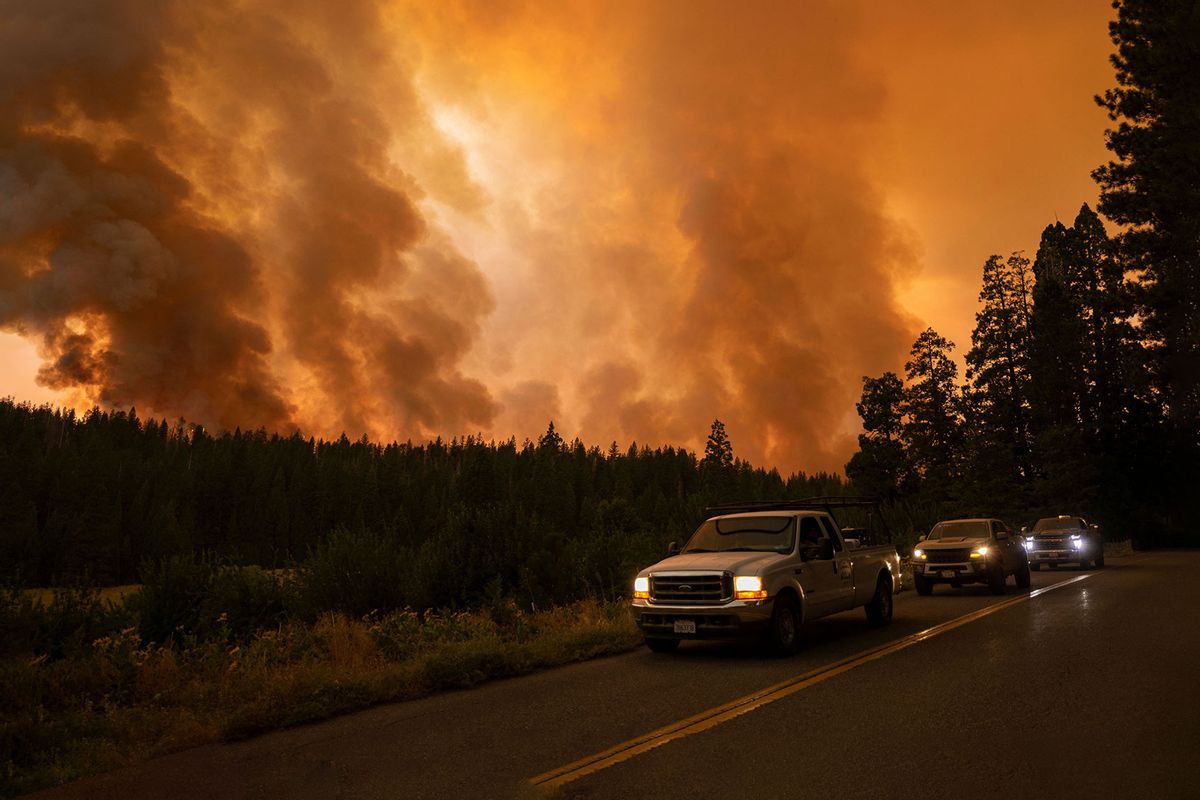The Annual Threat Assessment was created in the aftermath of 9/11 to centralize findings across all of the U.S. government intelligence agencies about the greatest threats to national security. The assessment, published in a declassified form each year, is essential reading for journalists and others interested in the new hot spots of tension and change.
For 2023, the assessment lists six major threats. Four of them are from rival nations: China ("building a world-class military [and] pushing to change global norms and potentially threatening its neighbors"); Russia's invasion of Ukraine ("a tectonic event that is reshaping Russia's relationship with the West and China … in ways that are unfolding and remain highly uncertain"; and North Korea and Iran (for their existing or suspected nuclear capabilities).
And then there's climate change — which is destined "to exacerbate risks to U.S. national security interests as the physical impacts increase and geopolitical tensions mount about the global response to the challenge." (The assessment also lists health security as a major area of global concern due to the huge strains on government budgets from the COVID-19 pandemic and its potential to ignite already existing social tensions).
So the first four major threats to the United States require a military posture and response, as well as diplomatic and god knows what other classified responses. But the fifth threat is ecological. Climate change is a reflection of how disequilibrium in the atmosphere has unleashed forces on Earth that exacerbate and heighten social and political tensions. Those stresses, says the Annual Threat Assessment, can range from the whipsawing impacts of extreme events to the displacement of people from lands that are no longer capable of sustaining them. Those climate refugees then become pawns in the immigration debate, one of the most divisive, and politically destabilizing, issues in America and Europe.
The conclusions of the U.S. intelligence community now line up with one of the private sector's most thorough gatherers of predictive data: the insurance industry. Insurance companies don't have the military to back them up, like the intelligence agencies, but they have money on the line and depend on accurate risk assessments for their survival. So they scope out threats to their indemnities against weather and other disasters and ensure the cost of premiums reflects the odds of risk.
This is what actuaries and spies have in common. Both the insurance and intelligence sectors swim in the language and science of risk and probability; neither can afford surprises.
Just as the government's intelligence agencies have identified climate change as a top security threat, the insurance industry has concluded it is an ominous threat to the world economy, the most potent nonmilitary weapon of mass destruction.
"Climate change poses the biggest long-term risk to the global economy. No action is not an option." says Swiss Re, one of the world's biggest reinsurance companies. Reinsurers insure retail insurance companies: They back up the insurers, and so, with their own money on the line, keep a close eye on the risks they face. At current emission trajectories, Swiss Re asserts that by mid-century the world economy will lose 10% or more of its value due to climate change's disruptive impacts.
The think tank of the global insurance industry, the Geneva Association, has called for an entirely new paradigm for assessing risk, since the volatility in weather extremes is confounding traditional insurance predictions based on the past. "Climate change is altering the future likelihood of a wide range of risks," concludes one of its recent reports. Those risks, they say, include the huge financial blows from the impacts of extreme weather events, the impact on company supply chains and the "likelihood" of increasing rates of success of climate lawsuits holding fossil fuel companies accountable for such losses. Several European insurance companies have already withdrawn from financing fossil fuel projects that contribute to climate change. In California and other states, U.S. firms are withdrawing rapidly from offering insurance policies against the symptoms of climate change, like wildfires and floods.
Rogue States
Just as climate change is identified as an imminent national security threat, some U.S. states are opting for appeasement. In Montana late last month, the governor signed a bill that bans the state from considering the climate implications in its environmental assessments of large construction projects, like coal mines or power plants. In other words, the state is prohibited from including climate impacts when considering permits for large earth-transformative energy projects. Such projects would both contribute to, and be impacted by, climate change. That law was signed by the governor just before the June 12 commencement in state court of a court case in which a group of young plaintiffs assert that the rights guaranteed to them in the state's constitution for a "clean and healthful environment" have been undermined by the state's longtime promotion of fossil fuels.
In Texas, the state Legislature passed a bill, SB 883, that forbids insurance companies from incorporating ESG standards in their valuation of insurance policies written in the state. ESG is the standard that many companies use to measure attention to environmental, social and governance factors in determining the worthiness of investments. The S and G are often associated with a range of matters like gender and racial equity, executive pay, community engagement. The E, of course, is environment — which to a great degree has come to mean climate change. Insurance companies raised concerns that they would be banned from using data that is core to their business model of assessing risk. Several insurance trade organizations opposed the bill, and reportedly leveraged exemptions to some of its provisions, including the ability to continue using traditional actuarial tools to perform risk analyses.
In Florida Gov. Ron DeSantis signed a law prohibiting any public funds to be invested in companies that commit to ESG principles. Other state legislatures are considering similar legislation. At least half-a-dozen global insurance companies have withdrawn from a U.N.-sponsored Net-Zero Insurance Alliance after efforts by Republican state politicians to threaten members with lawsuits to prevent them from operating in their states.
Such measures create a new set of tensions for businesses that want to operate in both red and blue states. Which rules to follow? According to a survey by PricewaterhouseCoopers, 85% of global insurers affirmed that ESG principles can be an important factor in determining the overall health of a business; a quarter of that total indicated that the most important criterion among those three principles was "to minimize the impact from climate change."
Unlike with foreign military battles, journalists do not have to drop into far-away combat zones to cover the insurgency against responses to the climate crisis. The latter national security threat can be reported on from every destabilized location in the United States.




Shares